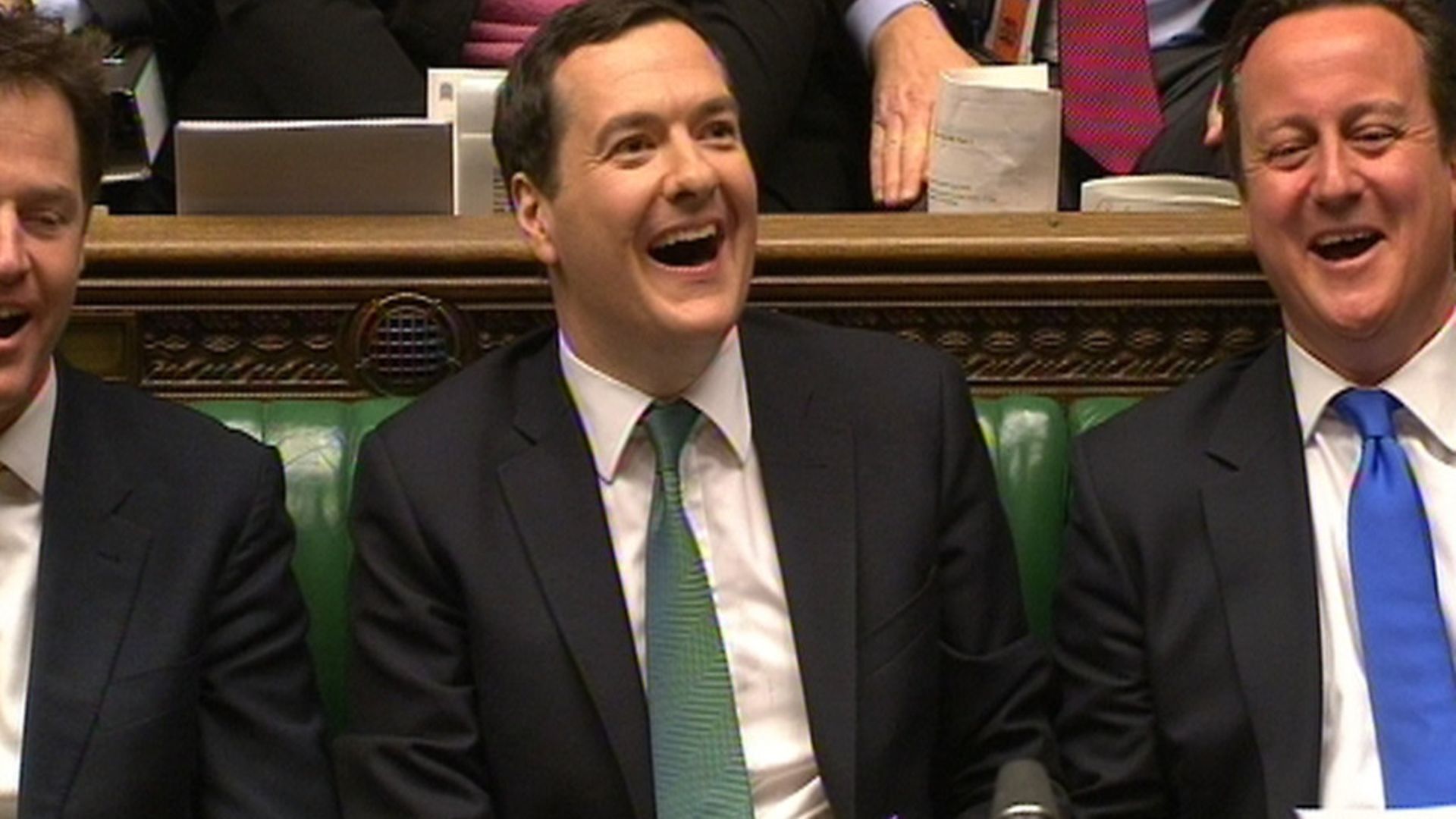
Voters in areas devastated by spending cuts swung the Brexit referendum for Leave, a new study has found.
Economist Thiemo Fetzer discovered a close correlation between the parts of the country hit the hardest by austerity and votes for Brexit.
More than £21bn was cut from the welfare budget during 2010 and 2015 by the Lib Dem and Tory coalition. The cuts were heavily centred on welfare reform, and led to the introduction of the ‘bedroom tax’ and freezing child benefit.
Fetzer, an associate professor in economics at the University of Warwick, also claimed that David Cameron and then chancellor George Osborne’s support for Remain turned public opinion in the opposite direction.
Fetzer claims: ‘The austerity-induced increase in support for UKIP is sizable and suggests that the tight 2016 EU referendum result (Leave won by a margin of 3.5% points) could have well resulted in a victory for Remain, had it not been for austerity.’

Commenting on the bedroom tax, he added: ‘The results suggest that households exposed to this tax shifted towards supporting UKIP, and experienced economic grievances as they fell behind with their rent payments due to the cut.
‘Indeed, dissatisfaction with political institutions as a whole increased following such cuts, with affected individuals being more likely to think that their vote is ‘unlikely to make a difference’ and that ‘public officials do not care’ about them.
‘In other words, by curtailing the welfare state, austerity has likely activated a broad range of existing economic grievances that have developed over a long period.’
Fetzer also laid blame at Labour’s door for not being sufficiently anti-austerity when the party was in opposition.
He told the HuffPost: ‘The big puzzle indeed is Labour ― why did they not benefit to the same extent. Some of it may be due to part of the austerity measures being due to Labour, for example incapacity benefit reform.
‘This is speculative but I think the broader observation that austerity increased dissatisfaction with the political system as a whole may explain this – Labour may have been perceived by voters as being part of the very same establishment’.
Labour MP and Best for Britain champion David Lammy tweeted: ‘It’s only natural that people were angry and desperate for change after six years of chronic underinvestment and austerity, as this report shows. But leaving the EU won’t solve these problems – it’ll make them significantly worse. ‘
Warning: Illegal string offset 'link_id' in /mnt/storage/stage/www/wp-includes/bookmark.php on line 357
Notice: Trying to get property 'link_id' of non-object in /mnt/storage/stage/www/wp-includes/bookmark.php on line 37






